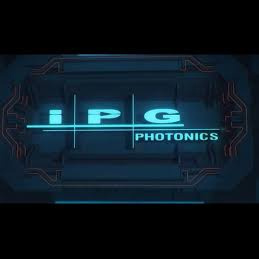Category: Independent Research
EverQuote: Rethinking the Insurance Industry
 Founded in 2011 by former M.I.T. classmates Seth Birnbaum and Tomas Revesz, and headquartered in Cambridge, Massachusetts, EverQuote is a leading online insurance marketplace. EverQuote’s goal is to revolutionize the insurance shopping experience for consumers and modernize the way insurance providers reach customers. In doing so, the company intends to become the largest online store for insurance policies in the U.S.
Founded in 2011 by former M.I.T. classmates Seth Birnbaum and Tomas Revesz, and headquartered in Cambridge, Massachusetts, EverQuote is a leading online insurance marketplace. EverQuote’s goal is to revolutionize the insurance shopping experience for consumers and modernize the way insurance providers reach customers. In doing so, the company intends to become the largest online store for insurance policies in the U.S.
Without any acquisitions, EverQuote has blossomed quickly, with a compound annual revenue growth rate of 32 percent over the last five years. Revenue has risen from $126 million in revenue in 2017, to $163 million in 2018, to $249 million last year. Unlike many VC-backed companies that have required multiple rounds of financing in the face of mounting losses, EverQuote was largely bootstrapped, with just $10 million of equity capital raised to fund the business before its IPO in June of 2018. In Q3 of 2019, the company generated its first non-GAAP operating profit, and has demonstrated consistent profitability in each of the last four quarters, with cash on the balance sheet rising steadily from $37 million at the end of Q2 last year, to $54 million this year.
Automotive insurance, EverQuote’s first addressable market, remains its largest, comprising over 80 percent of revenue. EverQuote’s online platform is facilitated by proprietary data and technology, which matches consumers with insurance options offered by carriers and independent agents tailored to their specific criteria. The criteria may include desired demographics, driving history, and the prospective policy holder’s driving track record.
EverQuote has invested heavily in data science, including machine learning, as well online advertising to efficiently match buyers and sellers of insurance policies. The company’s data assets include over two billion consumer-submitted data points that have come from 65 million quote requests, and 178 billion ad impressions, which have been acquired through its more than $650 million in advertising spending since inception. Over time, the company intends to fully automate the bidding process across most of its traffic sources, and is also working to achieve deeper integration with its insurance partners.
EverQuote boasts an expansive network of more than 100 insurance carriers, including the twenty largest property and casualty carriers in the United States, as defined by premium volume. In addition, the company partners with more than 8,000 insurance agencies. EverQuote’s leading partners include Progressive Casualty Insurance Company (which accounted for roughly 20 percent of revenue in 2018 and 2019) as well as StateFarm, Farmers, Esurance, Liberty Mutual, and Nationwide.
EverQuote gives consumers a single point of reference for insurance shopping. While EverQuote’s service is free for consumers, the company generates revenue through the sale of consumer referrals to insurance providers. According to EverQuote’s 2019 consumer survey, customers reported an average annual premium savings of $610 for insurance policies purchased through its marketplace.
EvreQuote has created a self-sustaining business model, having achieved EBITDA profitability and free cash flow generation in each of the last four quarters, although its progress is not reflected in the Street Consensus, which measures GAAP profitability. As an “asset light” business, like Google and Facebook, EverQuote generates more than $1 million in revenue per employee, and over half of its 300 employees are analysts, data scientists, and engineers. The company’s balance sheet is solid, even after the recent Crosspointe acquisition, as it will likely have more than $40 million in cash and no debt at the end of the current quarter.
IPG Photonics: Shining a Light on Factory Automation
 With trailing twelve month revenue of $1.25 billion, and a recent market cap of $8.7 billion, IPG Photonics (NASDAQ: IPGP), based in Oxford, Massachusetts, is a leading developer of fiber lasers, fiber amplifiers, and diode lasers. The company’s products are utilized primarily in the automotive, industrial machinery, consumer product, and medical industries.
With trailing twelve month revenue of $1.25 billion, and a recent market cap of $8.7 billion, IPG Photonics (NASDAQ: IPGP), based in Oxford, Massachusetts, is a leading developer of fiber lasers, fiber amplifiers, and diode lasers. The company’s products are utilized primarily in the automotive, industrial machinery, consumer product, and medical industries.
IPG Photonics was founded in Russia in 1990 by then 52 year-old physicist Dr. Valentin P. Gapontsev, Ph.D. Born at the outset of World War II, Dr. Gapontsev earned his Ph.D. in laser material science from the Moscow Institute of Physics & Technology in 1972. In addition to his numerous awards in science and technology, the Russian-born Gapontsev is known as one of the fathers of fiber lasers, stemming from his original work in laser material science. Today, the 81 year-old founder remains IPG’s Chairman and CEO, and through direct and indirect share ownership, controls the overwhelming majority of the company’s common stock. Originally, IPG produced custom glass and crystal lasers, wireless temperature meters, and laser components. The company subsequently shifted focus to high-power fiber lasers and amplifiers in 1992.
IPG debuted on the NASDAQ on December 13th, 2006 in a 10.4 million common stock offering, with 7.6 million coming from the company, and 2.8 million from shareholders. Merrill Lynch and Lehman Brothers were joint book-running managers for the offering, assisted by Needham & Company, Thomas Weisel Partners, and Jeffries.
IPG pursues a strategy of vertical integration, purchasing only the raw material inputs utilized for its products. Thus, it designs and manufactures nearly every key component used in its finished products, ranging from semiconductor diodes to optical fiber preforms, to finished fiber lasers, and amplifiers. The company also creates complementary products utilized with its lasers, such as optical delivery cables, fiber couplers, beam switches, optical processing heads, and chillers. Vertical integration enables the company to reduce manufacturing costs, improve quality control, as well as ensure product integration, and the protection of its intellectual property. IPG has also accumulated over 350 patents, with more than 80 more pending.
Automotive, broadly defined, is IPG’s largest vertical market, contributing roughly 20 percent of revenue. The company’s lasers are utilized for a variety of cutting and welding applications, including body welding across all types of production vehicles. In Q1 of this year, IPG received its first large order for Adjustable Mode Beam (ABM) lasers, which are utilized for electric vehicle battery welding. The new ABM lasers allow for “spatterless” welding, greater reliability, and higher wall plug efficiency. Another key application for electric vehicle batteries come from IPG’s pulsed laser, which is utilized for foil cutting.
With its cutting edge, unique proprietary technology, focus on vertical integration, and global reach, IPG is helping to illuminate the way to automated industrial production.

